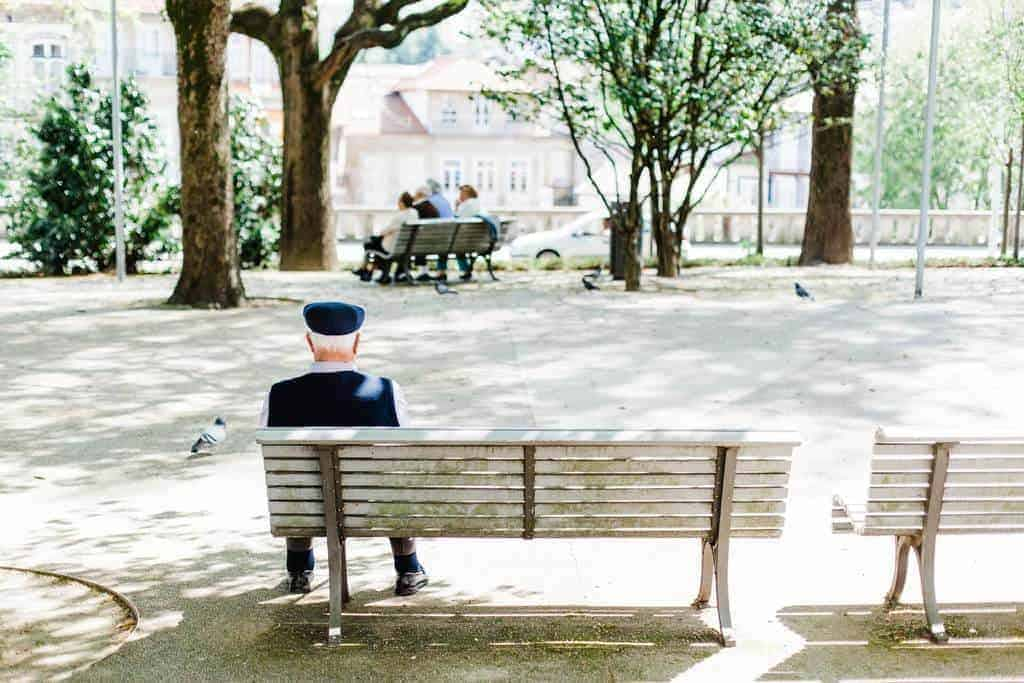If you’re feeling lonely, it’s easy to get lost in negative thoughts. Feeling lonely sometimes is normal and is usually nothing to worry about. But, if you feel overwhelmed or would like someone to talk to, Age UK has a wonderful selection of resources to help.
What is loneliness?
Understanding loneliness can help us to understand its effect on health. Loneliness and social isolation are not the same. Some researchers describe loneliness as the difference between what you want your relationships to be like and how they actually are. This is why you can feel lonely when you’re surrounded by people, for example. It’s also why two people could experience similar levels of social isolation but feel different levels of loneliness.
In this article, we delve into some interesting ideas and studies about the health effects of loneliness. However, it’s important to note that everyone’s experiences of loneliness are different. While these topics can help to understand what loneliness is and how to deal with it, it’s probably not helpful to dwell too long on negative questions! At the end of the article, you can find positive ideas and tips to help you reduce feelings of loneliness.
Statistics about loneliness today
Anyone can feel lonely at any age. You can also experience different levels of loneliness. According to 2017 research from the Office for National Statistics, approximately 45% of UK adults feel lonely at least occasionally. Further research undertaken during the COVID-19 pandemic shows that approximately 35% of people in the UK felt lonelier as a result of lockdown.
Loneliness isn’t necessarily for life. As your activities and habits change, so can your feelings of loneliness. But, if you often feel lonely and unhappy, then your GP is there to help you. They can point you to a variety of services and friendly ears to help you feel better.
Can you get sick from loneliness?
A recent study on university students found that “people who have a strong need to belong appear to suffer from loneliness and become ill more often”. Some professionals link loneliness and poorer health directly, including cases of heart disease. This has led to calls for high-quality and easy-to-access services to combat feelings of loneliness.
However, it’s important to question why loneliness and ill-health are linked. For example, it can be hard to work out cause-and-effect when studying illness and loneliness. Are you lonely because you’re ill or are you ill because you’re lonely? Below, you can find four other explanations about how you can get sick from loneliness:
1. Your perception of your health
When we feel down, we can experience negative thoughts towards almost anything. For example, people with anxiety problems can worry about their health when they are physically fine. Likewise, if you feel unhappy, you might be more likely to rate your health problems as worse. Research conducted on over 200 people between the ages of 60 and 106 found that “feelings of loneliness decrease one's evaluation of physical well-being.”
2. Not looking after yourself
If you feel unhappy because you’re lonely, you may take less care of yourself. This could cause you to develop unhealthy habits such as over drinking or eating, not exercising, or not looking into health issues promptly. Such habits can then lead to health problems. The charity Mind has a page with fantastic tips on how to improve self-esteem and take better care of yourself.
3. Sleep deprivation
Research shows that some people who are lonely report that they feel their sleep is more disturbed or inadequate when compared with people who don’t feel lonely. Getting a good night’s sleep does more than simply help you to feel refreshed. The NHS website states that “a solid night's sleep is essential for a long and healthy life” and that continual poor sleep can lead to health conditions. Their website also gives tips on how to get a better night’s sleep and resources for anyone who feels like they need help.
4. Similarities between groups who feel lonely
Perhaps not all health conditions linked to loneliness are really caused by loneliness. Some academics suggest that groups in society who feel lonely will all be exposed to similar other factors. For example, middle-aged people who feel lonely may have similar life situations, stressful jobs, or pre-existing health risks that lead to ill-health.
Can you die from loneliness?
It seems that doctors and researchers are not claiming loneliness as a cause of death, but as a risk factor. In which case, the question should be not “can you die from loneliness? “, but “how much of a risk factor is loneliness?”. According to at least one paper, there is substantial evidence that being socially connected can reduce risks of early death and vice versa. But, much more research would be needed to work out how much of a risk factor loneliness truly is. Whether or not you can die from loneliness, there are several things you can do to start feeling better.
We spoke to Leyla from Diverse Minds, who told Health Times: "Loneliness happens to people of all ages and groups. It is fundamentally a disconnect between the quantity and quality of social relationships that we have, and those that we want. It is often associated with social isolation, but people can and do feel lonely even when in a relationship or when surrounded by others.
"Society needs to find better ways of tackling the epidemic of loneliness as sadly technology and less face-to-face connection have made it increasingly difficult to find meaningful connection. Having meaningful connections where you live can alleviate feelings of loneliness and increase wellbeing."
How to feel less lonely
Creating strong relationships can ease feelings of loneliness. This, of course, takes time. But, being surrounded by people is a fantastic way to start. This could be virtually or physically. Seeing someone over a video call or talking online can be rewarding.
Starting a new hobby is a wonderful way to interact with people and occupy your mind. We have created several lists of interesting and useful hobbies that you can begin straight away. If you’re not sure where to get started, why not have a look at our article about finding the best hobby for you? Sometimes, starting something new can be daunting, but taking the time to work out what your hobby should be will make it more fun in the long run.









